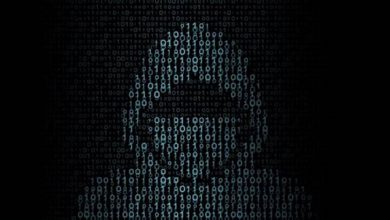bclub and Cyber Forensics: Investigating Dark Web Crimes

Introduction
In recent years, the dark web has become a breeding ground for various illegal activities, including cybercrime, drug trafficking, and hacking. As law enforcement agencies strive to combat these crimes, the field of cyber forensics has emerged as a crucial investigative tool. This article aims to explore the significance of bclub and cyber forensics in investigating dark web crimes. We will delve into the role of bclub the techniques used in cyber forensics, and the challenges faced by investigators.
I. What is bclub?
bclub is a renowned cybersecurity firm that specializes in the investigation of dark web crimes. With a team of highly skilled professionals, bclub offers cutting-edge solutions and expertise in cyber forensics. Their primary objective is to assist law enforcement agencies in identifying cybercriminals, gathering evidence, and prosecuting them in a court of law.
II. The Role of Cyber Forensics in Dark Web Crime Investigations
Cyber forensics plays a crucial role in the investigation of dark web crimes. It involves the collection, preservation, and analysis of digital evidence to uncover the activities of cybercriminals. By employing various techniques and tools, cyber forensic experts can reconstruct digital trails, trace IP addresses, and decrypt encrypted data.
A. Digital Evidence Collection
Collecting digital evidence is a critical step in dark web crime investigations. Cyber forensic experts employ specialized software and techniques to extract data from devices such as computers, smartphones, and servers. This evidence can include chat logs, transaction records, and encrypted files, which can provide vital clues in identifying and apprehending cybercriminals.
B. Digital Forensic Analysis
Once the digital evidence is collected, it undergoes a meticulous analysis process. Cyber forensic experts use advanced tools and techniques to examine the evidence, uncover hidden information, and establish a timeline of events. This analysis can reveal the identity of perpetrators, their methods of operation, and their network of associates.
C. Decrypting Encrypted Data
The dark web is known for its use of encryption to protect sensitive information. Cyber forensic experts at bclub possess the expertise to decrypt encrypted data, allowing them to access crucial evidence that would otherwise remain hidden. This capability is invaluable in uncovering the true extent of dark web crimes and identifying those responsible.
III. Techniques Used in Cyber Forensics
Cyber forensic experts utilize a range of techniques to investigate dark web crimes. These techniques are designed to uncover hidden information, trace digital footprints, and reconstruct digital trails. Some of the key techniques employed include:
A. Network Forensics
Network forensics involves the analysis of network traffic to identify suspicious activities and trace the origin of cyberattacks. This technique allows investigators to track the movement of data across different networks, pinpoint compromised systems, and gather evidence of unauthorized access.
B. Memory Forensics
Memory forensics involves the analysis of volatile memory (RAM) to uncover valuable information that may not be available in the file system. Cyber forensic experts use specialized tools to extract data from memory, such as running processes, network connections, and encryption keys. This technique can provide critical insights into ongoing cybercriminal activities.
C. File System Forensics
File system forensics focuses on analyzing the file systems of devices to uncover evidence of criminal activities. This technique involves examining file metadata, deleted files, and file timestamps to establish a timeline of events and identify potential evidence.
D. Malware Analysis
Malware analysis is a crucial technique in investigating dark web crimes. Cyber forensic experts dissect malicious software to understand its behavior, identify its purpose, and gather intelligence on the perpetrators. This analysis can help in identifying the source of the malware and its connection to other criminal activities.
IV. Challenges in Investigating Dark Web Crimes
Investigating dark web crimes presents numerous challenges for cyber forensic experts. The anonymous nature of the dark web, the use of encryption, and the constantly evolving tactics of cybercriminals make these investigations complex and demanding. Some of the key challenges include:
A. Anonymity and Encryption
The dark web provides a platform for cybercriminals to operate anonymously, making it difficult to trace their activities and identify their true identities. Moreover, the use of encryption adds another layer of complexity, as investigators need to decrypt data to uncover evidence. Overcoming these challenges requires specialized skills and advanced forensic techniques.
B. Evolving Tactics of Cybercriminals
Cybercriminals are constantly adapting their tactics to evade detection and stay one step ahead of investigators. They employ sophisticated techniques such as obfuscation, encryption, and anonymization to conceal their activities. Keeping up with these evolving tactics requires continuous learning and staying updated with the latest trends in cybercrime.
C. Jurisdictional Challenges
Theinvestigation of dark web crimes often involves multiple jurisdictions, as cybercriminals can operate from anywhere in the world. Coordinating investigations and sharing evidence across international borders can be a complex and time-consuming process. Law enforcement agencies need to work together and establish international partnerships to effectively combat dark web crimes.
V. Conclusion
The dark web poses a significant threat to society, as it provides a platform for various illegal activities. However, with the expertise of bclub.mp and the field of cyber forensics, law enforcement agencies are better equipped



